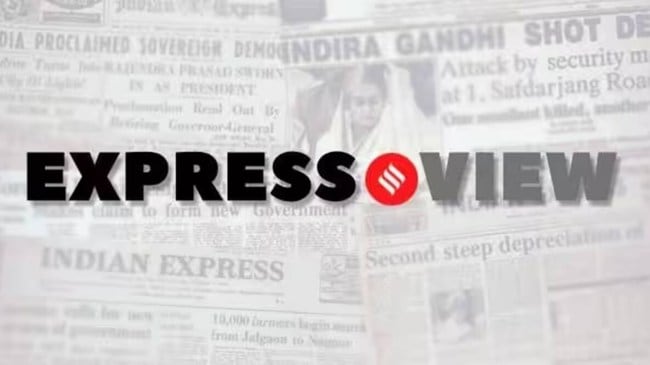Opinion Evidence, not politics, must shape the story from Keezhadi
Given its potential to transform the current understanding of Indian history, what Keezhadi calls for is rigorous and transparent research, free from ideological pressures
 Whether or not it shows evidence of a civilisation that is as old as the one unearthed at the Indus Valley sites, Keezhadi can help uncover much more about India’s complex and deeply interconnected past.
Whether or not it shows evidence of a civilisation that is as old as the one unearthed at the Indus Valley sites, Keezhadi can help uncover much more about India’s complex and deeply interconnected past. What was once a quiet village on the banks of the river Vaigai in Tamil Nadu is today emerging as one of the most significant archaeological sites in India. Excavations at Keezhadi (or Keeladi) have revealed the existence of an advanced urban settlement, possibly going back as far as the 8th to the 5th century BCE. The findings — which include evidence of trade, such as carnelian beads, and literacy, in the form of Tamil-Brahmi inscriptions on potsherds — paint a compelling picture of a flourishing civilisation in South India dating back much further than previously believed. The discoveries at Keezhadi are significant not only for Tamil Nadu, but for all of India, as they challenge long-standing historical narratives and offer proof that urbanisation may have developed parallelly in different regions of the Subcontinent.
Yet, the thrill of the discovery has been marred by an unseemly politicking. Allegations of administrative interference and accusations of downplaying the excavation’s findings threaten to undermine the credibility of the process. The DMK-led state government, which sees the Keezhadi findings as key to its “Dravidian pride” politics, arguing for a Tamil civilisation that is as old as the Indus Valley Civilisation, has accused the Union government of attempting to “sabotage” the excavations to suit its own ideology. The Centre, in turn, has alleged attempts to play up regional pride at the cost of scientific study; earlier this month, Union Culture Minister Gajendra Singh Shekhawat raised questions over the 989-page “final” report submitted in 2023 by archaeologist K Amarnath Ramakrishna, who had led the Keezhadi dig, saying that it was not “technically well-supported and established yet”. The latest trading of accusations comes after Ramakrishna’s transfer following his refusal to revise his report when the ASI, in May this year, sought fresh justification for the dating of the findings. The Tamil Nadu government has hit out at the Centre over the transfer, with Chief Minister MK Stalin describing it as yet another “hurdle” placed before the “Tamil race”.
Whether or not it shows evidence of a civilisation that is as old as the one unearthed at the Indus Valley sites, Keezhadi can help uncover much more about India’s complex and deeply interconnected past. Politics cannot be allowed to distort what is one of the most exciting archaeological discoveries of recent times — evidence alone must shape the narrative. It is vital that the site is not reduced to an ideological battleground. Given its potential to transform the current understanding of Indian history, what Keezhadi calls for is rigorous and transparent research, free from ideological pressures.






